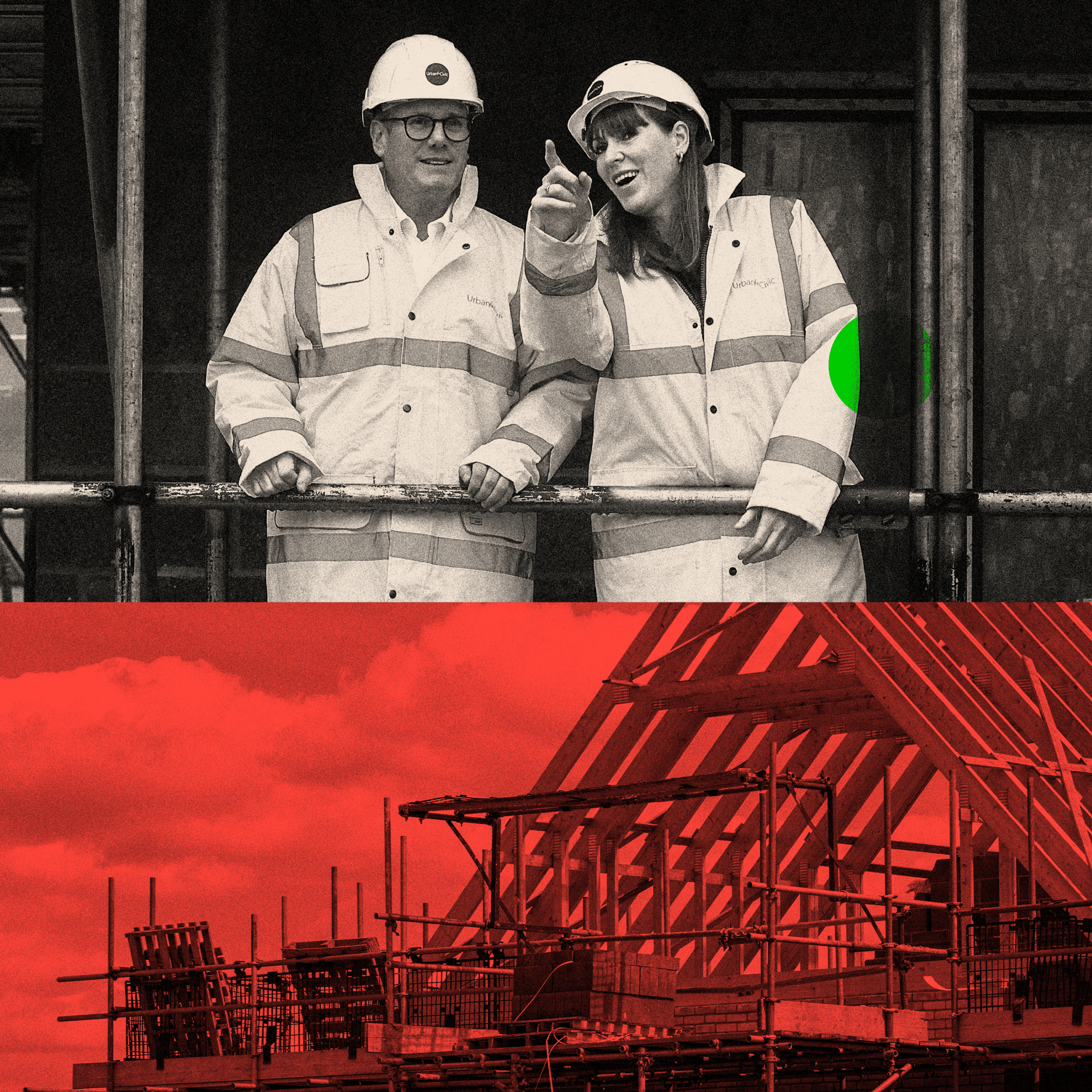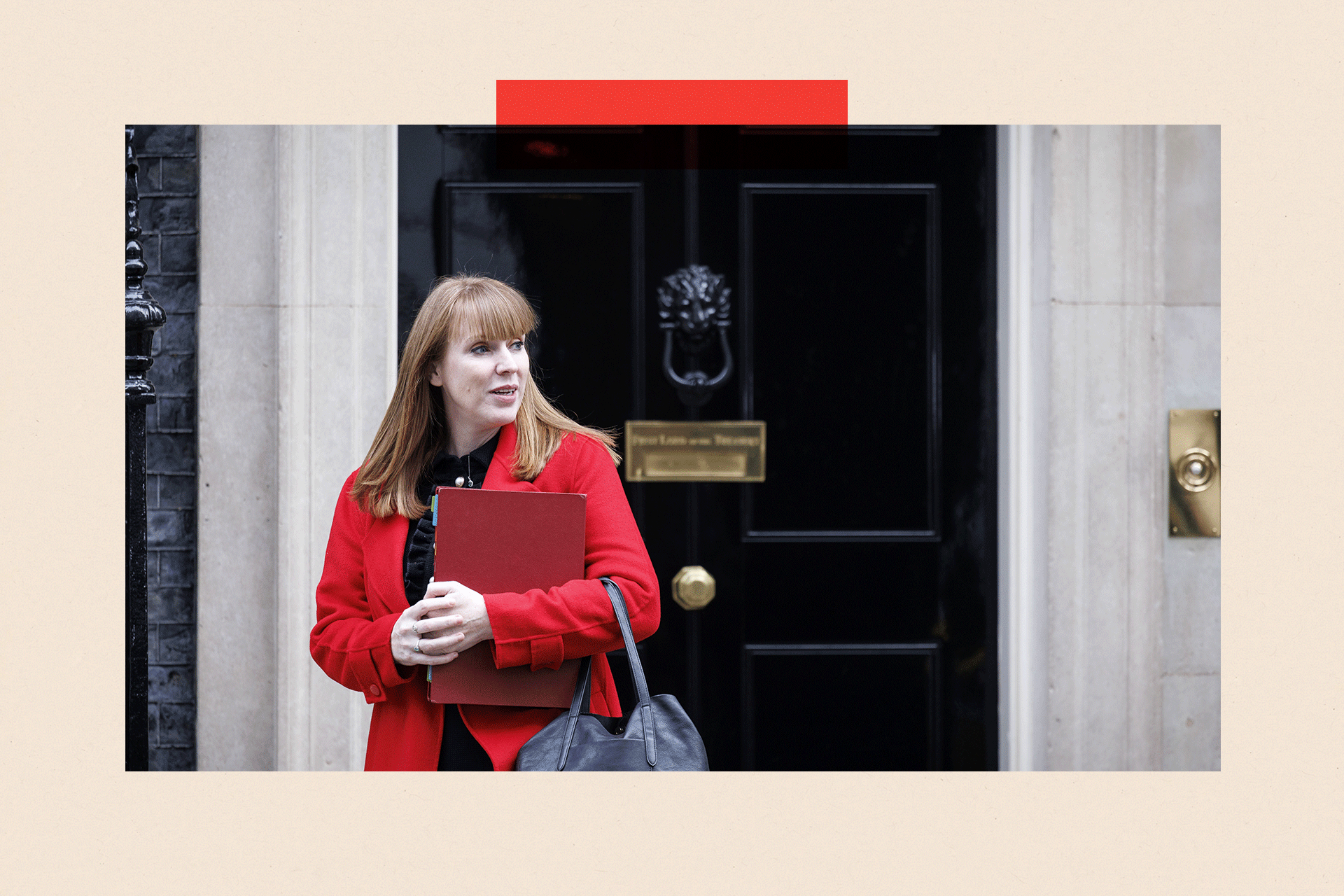
"We've been looking forward to this fight since the morning after the election," said a senior government source, almost with glee, about the government's changes to planning.
Ministers are prepared to take on political rivals who don't want to accept the governments new housing targets; to prove to the country that Labour really does want more people to own a home, for more voters to have access to a safe, warm, permanent house within this parliament.
A blizzard of statistics show just how tough it is to buy a home if you can theoretically afford it, or how hard it can be to find decent accommodation if you struggle to make ends meet.
Just this week, house prices hit a record high, according to the Halifax, one of the biggest mortgage lenders. Twenty years ago a family might have expected to buy a house worth roughly four times their annual income – now it might be eight times what they earn, which means the proportion of the population that rents rather than owns has nearly doubled in two decades.
The numbers of families struggling to find a stable home has gone up massively too. More than 159,000 children in England alone are homeless without a permanent address - a record high. The housing benefit bill to support those who can't completely pay their own way is about £20bn and rising, a massive price tag for the taxpayer.
In other words, this affects us all.
Sir Keir Starmer has shouted about building homes since his opposition days, trying out the line "we are the builders" at his party's conference in 2023 and repeating it since. Sources in the sector welcome Labour's concentration and ambition on housing and contrast it with the "negative" relationship with the previous government. Deputy Prime Minister Angela Rayner, who will be on our show tomorrow, is praised for properly talking to, and listening to, the industry.
"It's brilliant to have a government that wants to fix the market - it's pretty broken," a housing leader said. Even a senior Conservative applauded Sir Keir and Rayner's focus on housing and the return of targets for local councils to build: "She is right to bring back mandatory targets and we were wrong to get rid of them."
Some question whether the government's approach is radical enough, but it is busy introducing measures it hopes will help the sector meet what sources describe as a "stretching" target to build 1.5 million new homes by the end of their term in office, in 2029.
Ministers are trying to change the planning rules in a planning bill coming next month, bring back targets for councils, speed up building of big housing developments, and a new taskforce hopes to create new towns. The political message you'll hear regularly not just from Rayner on housing, but from the prime minister on nuclear reactors and the Chancellor Rachel Reeves on Heathrow is: "The answer can't always be no."
This intention - to build, not block - is one thing. Making it real is different altogether.
Countless ministers have told us they are changing the planning rules and nobody in the industry, or indeed in the opposition, would tell you that planning isn't a big part of the problem.
But look at what's actually happened in recent times - in the run-up to the election, when Labour seemed on their way back to power, the number of planning approvals hit the lowest level in a decade. Since Labour moved into No 10 the number of sites approved for development has continued to fall.
And while banging the drum for building, the government has also put up stamp duty for first-time buyers, and tightened rules for private landlords to improve the quality of homes for renters. Whether you approve of those changes or not, ministers are trying to encourage builders in one direction, yet increasing the costs for buyers and builders in the other. Whatever Labour say about planning "in other parts of the universe they are making it really expensive for builders to build", another housing source says.

Labour aims to build 370,000 new homes in England each year to meet its pledge of 1.5 million homes over five years
And changing planning has its limitations. If councils can't make up the acute shortages of planning officers to process applications, then tweaking the rules will have a limited effect. Housing associations who are charged with building social housing are also stretched for cash.
They have been given, perhaps rightly, new demands to improve the standard of homes they provide, but that doesn't come cheap. If they aren't feeling flush enough to sign up to affordable homes in new developments, builders who are required to build affordable homes as part of their projects can't go ahead.
"Thousands of affordable homes are on hold," an industry source tells me, "and that means tens of thousands of new homes are on hold too."
And even if everything else was fixed, are there enough builders to lay the bricks or enough plumbers to lay the pipes?
An industry insider told me: "There was a big belief in govt that if you pulled the planning lever, everything would flow, but you can't just pull one lever and expect everything to work," while another said: "Labour has got fixated thinking planning is the answer to all."
Listen to Sir Keir, and in a weird echo of Boris Johnson, he is saying enough of the naysaying, this is a priority and his government will do everything to make it happen. Perhaps. Yet bear in mind two inescapable truths.

Sign up for the Off Air with Laura K newsletter to get Laura Kuenssberg's expert insight and insider stories every week, emailed directly to you.

The first truth is that housing is a market, so its fortunes or failures are completely connected to what else is going on in the economy. Many members of the public are stretched financially and appetite for risk is low, manifesting in huge challenges for first-time buyers getting access to cash.
It's a challenge, too, for big builders: you might not shed a tear for the huge property companies but as a source says: "A baker won't bake a loaf of bread unless he knows someone is going to buy it - the economy is so uncertain you have to wonder if builders will take the risk to buy land, and then build with an uncertain return three or four years down the line."
The second truth is that for all its talk of "change, change, change", Labour does not seem to have the appetite or resolve to transform how the housing sector works in any dramatic way.
They are not proposing, for example, councils directly funding projects that get diggers on site. There is no suggestion of a massive underwriting of lenders like George Osborne's Help to Buy, no hint of a Margaret Thatcher-style Right to Buy of the 1980s, nor a Clement Attlee-style council house building programme from after the World War Two.
In other words, a source said, everything they are doing is version of what has been tried before, while another said: "It's kind of up to the market, they are leaving it mainly in its hands."

Angela Rayner has been praised for properly talking to, and listening to, the industry
There is a huge opportunity for the government to change people's lives for the better if they can make it easier to buy houses, and improve access to decent homes for people who can't afford to buy. And you can't question ministers' desire to make a difference during their time in office.
But wanting something to happen and making it happen is not the same. A government source told me: "Imagine, if in the end we know there'll be kids who grow up in houses that exist because we made the change."
A laudable aim, but the scale of the ambition is, some argue, not matched by the willingness for truly bold action.
Ministers tell you until they're blue in the face that they will build more homes and solve the housing crisis. But this government is quickly discovering it can't stand in Whitehall and just shout: "Let it be so."
Sunday with Laura Kuenssberg
The big names behind the big stories. Laura Kuenssberg talks to those making the news, inside and outside politics.
More from InDepth
Battered but defiant - where does Hezbollah go from here?
- Published7 February
The tariff wars have begun - buckle up
- Published6 February
Greenland's dark history - and does it want Trump?
- Published3 February
BBC InDepth is the home on the website and app for the best analysis, with fresh perspectives that challenge assumptions and deep reporting on the biggest issues of the day. And we showcase thought-provoking content from across BBC Sounds and iPlayer too. You can send us your feedback on the InDepth section by clicking on the button below.
Get in touch
InDepth is the home for the best analysis from across BBC News. Tell us what you think.

